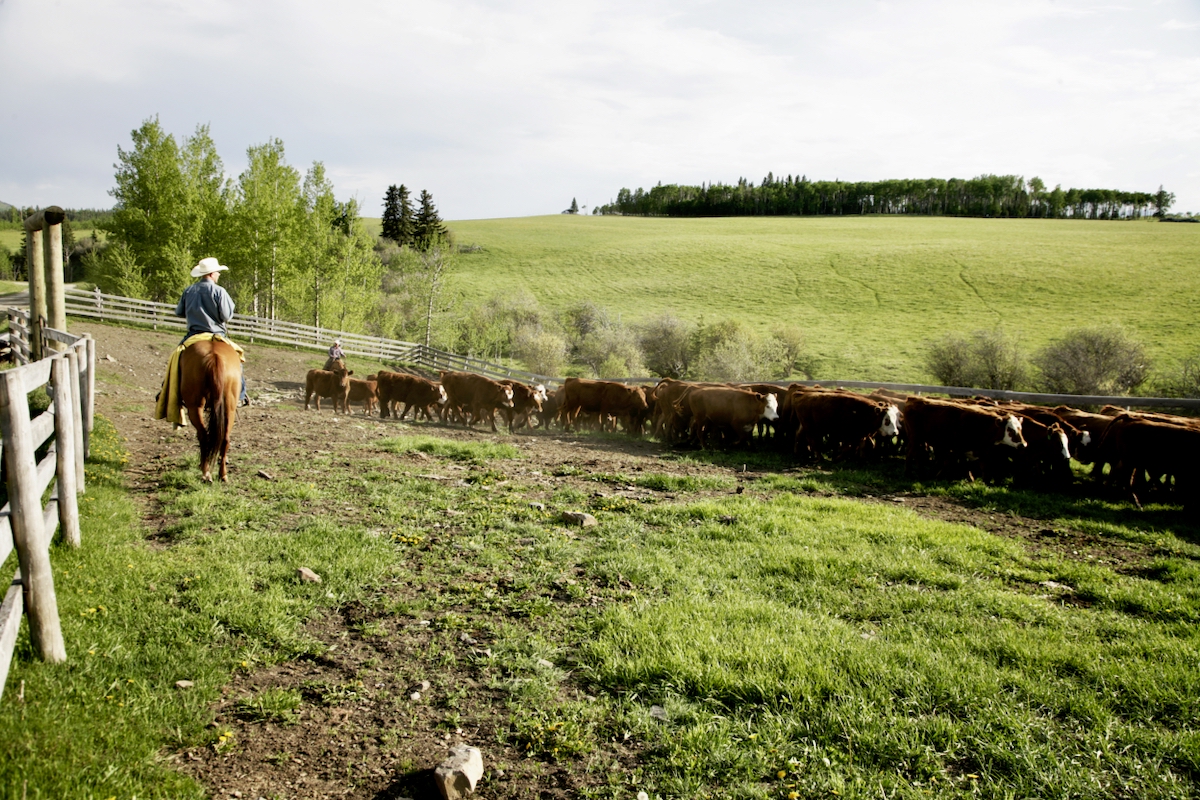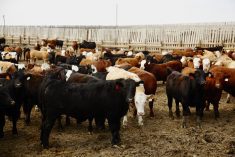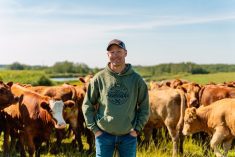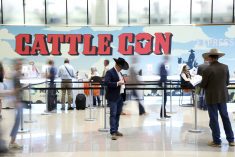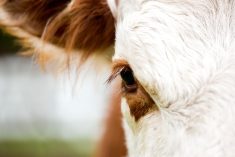There is no such thing as a quiet time in the cattle industry, but it feels like the first part of 2025 has been busier than other years. The days leading up to and immediately after President Trump’s inauguration were intense as I juggled my farm responsibilities with media interview requests and meetings to discuss the possible impact of tariffs on our industry.
The uncertainty continues about whether the U.S. will impose tariffs on Canada, if tariffs will include agriculture in general and live cattle, genetics and beef specifically, with added confusion over the implementation date. The Canadian Cattle Association (CCA) continues to embrace every opportunity to advocate on behalf of Canadian beef producers through virtual and in-person meetings, and taking the opportunity to appear and be heard on radio and television news broadcasts and in newspaper and magazine articles.
If we can find anything to be positive about in this situation, it is that the Canadian beef industry was prepared to react and speak with one collective voice. This one-voice approach is helped by the National Beef Strategy and the co-operation of all the groups involved. The Canadian Beef Advisors launched the third updated 2025-30 strategy at the end of January. The strategy positions the Canadian beef industry for greater profitability, growth and as a high-quality beef product of choice in the world. Our industry is diverse and made of many parts. The way we have worked together since the first strategy was launched in 2015 has been a big factor in our ability to influence policy.
Read Also
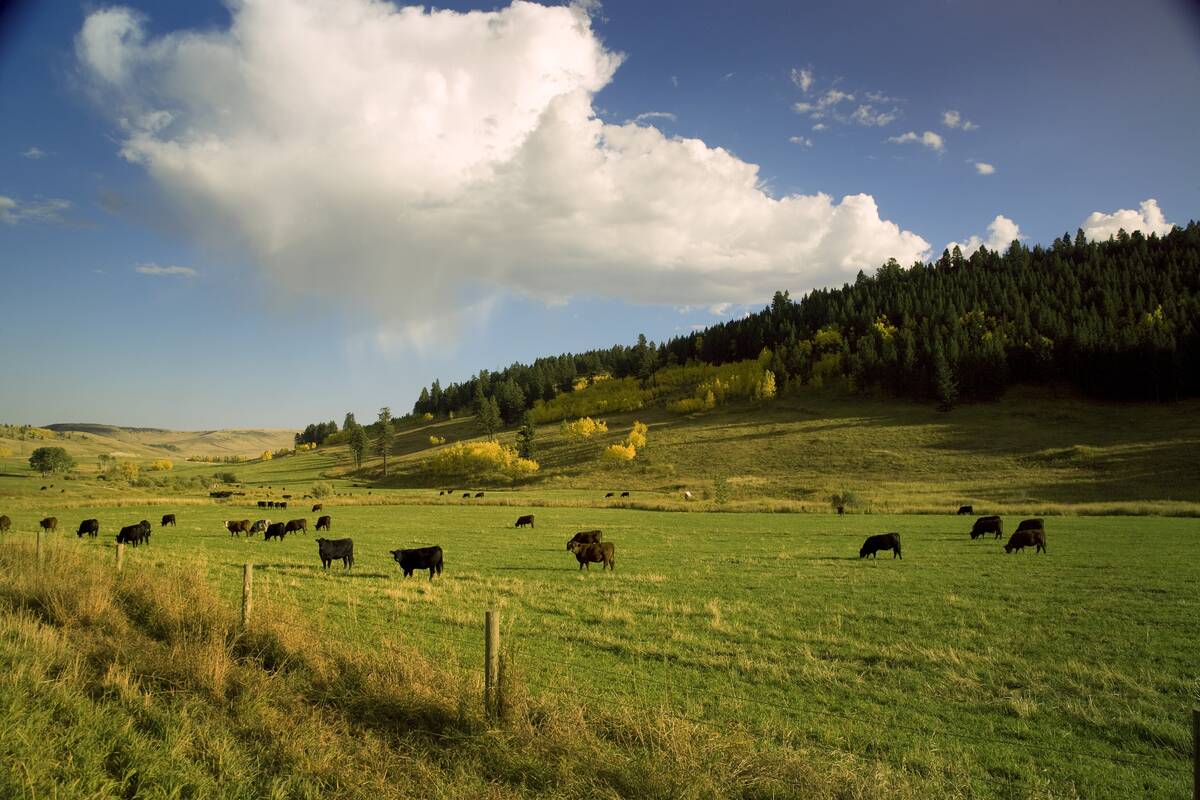
The Canadian Cattle Association’s international advocacy efforts
Global ag policies affect Canadian food policy, so the Canadian Cattle Association participates in international and domestic forums
I currently serve as chair of the Canadian Beef Advisors in addition to my role as CCA president. The Canadian Beef Advisors is made up of elected leaders and staff representation from the seven national beef organizations responsible for policy, marketing, research and sustainability: Beef Cattle Research Council, Canadian Beef Breeds Council, Canada Beef, Canadian Cattle Association (and provincial member associations), Canadian Meat Council, Canadian Roundtable for Sustainable Beef, and the National Cattle Feeders’ Association. We believe that a united beef industry is a stronger beef industry which benefits all those working in it today and into the future. I encourage you to visit beefstrategy.com to learn more about the strategy.
Tariffs are top of mind as I write this in early February, but CCA is lending its voice to speak up for Canadian cattle producers in several other areas as well. Although Parliament is prorogued, we continue to work on your behalf, advocating to increase the business risk management program limit for feedlots, along with cost-shared premiums and higher coverage levels for price insurance. Our efforts are ongoing for equitable coverage. Technical barriers to trade with China, the United Kingdom and European Union continue, and we are committed to helping achieve the best deal for Canada and Canadian cattle. Work on changing the 100-day residency rule for Canadian cattle processed in the U.S. is ongoing and close to the finish line. Those last few steps are often the toughest and we are working with U.S. allies to finish this. That change should increase U.S. packer presence in the Canadian market, especially in Ontario-East. Consultation has been ongoing on Bill C-59 which makes it easier for the Commissioner of Competition to take enforcement action against “greenwashing” or misleading environmental claims. Along with numerous other industries, we look forward to clarity on these regulations. The Food and Agriculture Organization of the United Nations (FAO) is conducting a consultation regarding cell-cultured products such as lab-grown foods. We have been asked to provide input on how to differentiate meat from cell-cultured meat-alternative products.
In early January a case of foot-and-mouth disease was detected in water buffalo in Germany. This incidence of the foot-and-mouth virus in Europe warrants heightened awareness by Canadian producers and travellers and is a stark and important reminder about the importance of biosecurity. In Canada, foot-and-mouth disease is a reportable disease under the Health of Animals Act and all suspected cases must be reported to the Canadian Food Inspection Agency (CFIA). International travellers are required to declare to the Canada Border Services Agency when they have visited a farm internationally or will be returning to a farm in Canada and to refrain from contact with livestock for the prescribed time. CCA works with the beef industry and with CFIA and Animal Health Canada to ensure that Canada Border Services Agency staff are appropriately screening travellers by advocating for ongoing training and reiterating the importance of the screening questions.
Canadian producers should take extra precautions at this time. Our website has links to the many resources available for those travelling internationally. Even if you don’t have plans to travel to Europe, it is a good idea to take a few minutes to review the Canadian Beef Cattle On-Farm Biosecurity Standard to ensure that you’re following best practices.
The Health of Animals Act grants CFIA the right to order the destruction of animals as part of maintaining Canada’s herd health. This act is usually enforced as a method of disease control when there are no alternatives. Producers whose animals are destroyed under this act receive set compensation rates that are currently under review. A recent positive case of tuberculosis discovered in a packing plant and the trace-out of that case has highlighted the need to update these values. CCA has been pushing for the compensation that CFIA offers to producers who have their animals ordered destroyed to better reflect the market.
As we look to the future, it is crucial to invest in and support the youth of our industry to secure long-term success. I encourage all young people who want to help shape the future of the beef industry to apply for the Canadian Cattle Young Leaders 2025-26 program year. Learn more and apply for the program at canadiancattleyoungleaders.ca by March 31.

